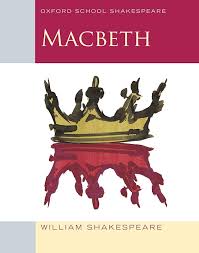
A popular text studied in Year 10 English is Shakespeare’s play Macbeth. Teaching this text has involved highlighting the main themes and exploring their importance in relation to the context of the play. The main theme of the play, which is the core of most essays, is the destructive nature of unchecked ambition and the moral consequences it holds.
This is seen through the character arc of the main character Macbeth, who falls victim to his unchecked ambition, ultimately leading to his downfall at the end of the play. Whilst Macbeth starts out as a loyal warrior, his desire for power provokes him to make immoral decisions. Macbeth’s initial hesitation to commit murder highlights his recognition of the immoral nature of this act. However, his ambition clouds his judgement, leading him to commit acts he is unable to recover from. This is seen at the end of the play, where Macbeth is ultimately overpowered by guilt, with Shakespeare exploring the danger of unchecked ambition, as it leads to the destruction of one’s morality.
This is also depicted through Macbeth’s wife Lady Macbeth, whose manipulation has a significant impact on Macbeth’s decisions. Her character subverts the theme of gender roles in the play, as she appears more ambitious than Macbeth, challenging traditional notions of femininity. However, she also experiences consequences for her actions, with her descent emphasising the destructive nature of power, as it ultimately overpowers those who try to achieve it immorally.
The play is driven by the motif of guilt, manifested in the character’s hallucinations. These hallucinations display the paranoia and fear felt by Macbeth and Lady Macbeth after engaging in immoral acts. Macbeth becomes unable to escape his guilt, making him forever haunted by the consequences of his actions, ultimately causing his downfall. Shakespeare uses the downfall of these characters to warn readers about the inevitable consequences experienced by individuals who pursue ambition immorally.
Patricia Hardas

